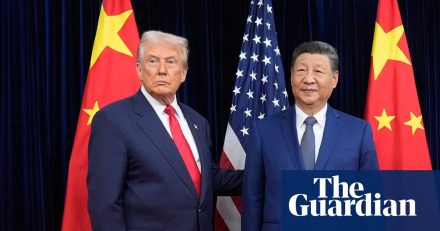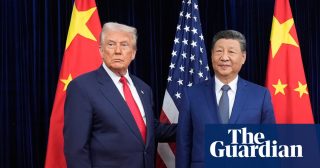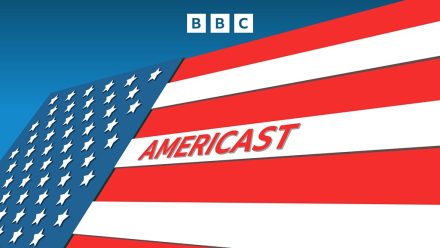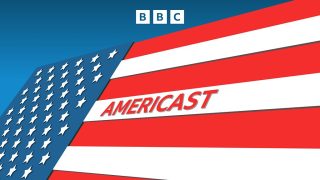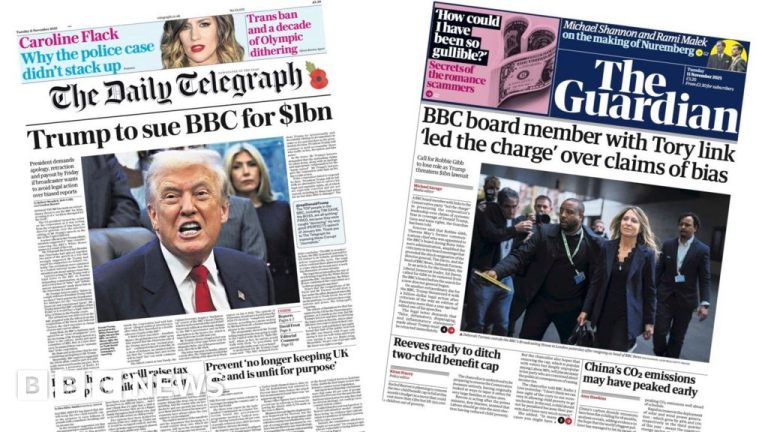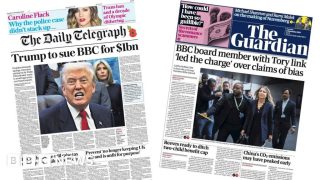Syria’s president, Ahmed al-Sharaa, has held talks with Donald Trump at the White House — the first official visit by a Syrian leader since national independence in 1946. Sharaa was expected to press for the full lifting of remaining US sanctions on his war-ravaged country.
Sharaa, whose Islamist rebel forces toppled Bashar al-Assad late last year, has courted the US president to try to reverse economic restrictions imposed during the 13-year civil war, arguing they are no longer justified. His media adviser, Ahmad Zeidan, said the top priority was repeal of the Caesar Syria Civilian Protection Act of 2019, which imposes sweeping sanctions tied to human rights abuses by the Assad era.
Trump first met Sharaa last May in Riyadh on the sidelines of a Gulf Cooperation Council summit and praised him as a “young, attractive guy. Tough guy. Strong past. Very strong past. Fighter.” Trump later ordered most sanctions lifted in a major policy shift, but the Caesar Act remains in place and would require congressional action to be removed permanently.
Sharaa, who as a militant leader once had a $10m US bounty, is the former head of Hayat Tahrir al-Sham (HTS), the rebel group that led the military operation to oust Assad. Washington led a UN security council vote this week to quash UN sanctions against him. In September the ex-jihadist, previously affiliated with al-Qaida, became the first Syrian president in decades to address the UN general assembly in New York.
“We have a big mission to build the economy,” Sharaa said at a summit on the sidelines of that gathering. “Syria has a diverse workforce. They love to work, it’s in its genes. So don’t be worried, just lift the sanctions and you will see the results.” The World Bank put a “conservative best estimate” of the cost of rebuilding Syria at $216bn.
The US state department on Friday removed Sharaa from a terrorism blacklist, a move that had been widely anticipated, and he is expected to formally join the US-led coalition against Islamic State during his Washington visit. Syria this month carried out nationwide preemptive operations against IS cells; the interior ministry said security forces conducted 61 raids, arrested 71 people and seized explosives and weapons.
State department spokesman Tommy Pigott said Sharaa’s government had been meeting US demands, including efforts to locate missing Americans and to eliminate remaining chemical weapons. “These actions are being taken in recognition of the progress demonstrated by the Syrian leadership after the departure of Bashar al-Assad and more than 50 years of repression under the Assad regime,” Pigott said, adding that lifting punitive measures would promote “regional security and stability as well as an inclusive, Syrian-led and Syrian-owned political process.”
Sharaa and his team have sought to present themselves as moderates ready to usher in a new era of peace and prosperity after 13 years of war and to work constructively with regional powers. However, the Israeli government is said to oppose a full lifting of US sanctions, arguing it would surrender key leverage over Damascus. While Israel and Syria remain formally at war — and Israel continues to occupy the Golan Heights — Trump has expressed hope that the two countries can normalise relations.
Agence France-Presse and Reuters contributed to this report.

